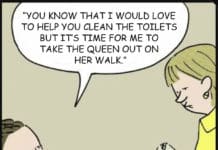Getting the work-life balance right is not easy for many people, and for many juggling with earning enough to pay the rent or mortgage, food and other bills, there is often very little choice in the amount of free time available. Time to spend with families and friends is important, and I often admire the Spanish tradition of putting family life first whenever possible.
The Spanish Minister for Tourism and Technology was recently musing about the impact of technological changes upon society, and suggested that a three-day weekend was almost inevitable.
The Minister spoke about fast moving technological developments in communication, public administration and education, and the 51.2 million mobile phones that are in use throughout Spain. With 40 million people having ready access to a mobile Internet connection, more people could work from home or ‘on-the-go’. He went on to say that this approach to work would have positive effects on health, productivity and public spending.
The Minister raises some good points, and his ideas are not new, since many claim that the traditional employment structure is bad for health. Time spent with family and friends is the most important part of life, and with work being the means with which we pay for it. In many ways, this ‘flexible’ and more relaxed style of living and working in the Canary Islands has been operating for many years.
Very few shops, and certainly no offices or banks, are open on a Saturday afternoon. The few shops that do open (unless they are situated in commercial centres or tourist areas) close their doors at lunch time on Saturday, and may or may not reopen on Monday morning. Many Canarians take Monday off work, which is why shopping, banking and visiting Town Halls is never a good idea on Mondays.
Fiestas and family life are very important in the Canary Islands. Most weeks are punctuated by a different fiesta in towns and villages across the islands. Often those living in neighbouring municipalities feel the urge to join in too, and close their doors early on the day before the big event to allow time to prepare food, shop and to dress up for the big day.
Schools close at the end of June for the traditional long, summer holiday and reopen again in mid-September. In many ways, this is necessary, because of the excessive heat in Spain and the Canary Islands at this time of the year; few classrooms enjoy the luxury of air conditioning. It is a time when children and their families can enjoy a long summer break together, and it is taken very seriously.
For some children, sports, language and summer camps are an option, which some busy parents take full advantage of. However, these facilities do not come cheap and for many families the only option is for grandparents to share the load and for parents take time off work to be with their offspring. As a result, legal, financial, postal and most other services grind to a halt, since no one ever seems to consider staggering holiday entitlement or to appoint reserve and back up staff to cover the shortfall of workers.
Then there is the dreaded August 15th. This is the day when almost everything closes down (except in the tourist areas) for at least two weeks, and possibly more. Many of us are longing to get back to normal, which will happen sometime in mid-September, but definitely by October!
Despite such inconveniences, Spanish and Canarian workers do work very hard and for long hours. Most shops and offices open from about 08.00am, and closure at 10.00pm is not unusual, particularly in commercial centres. Most small shops close at around 1.30pm for the traditional siesta, and open their doors again at around 4.00pm.
This is the time when Spanish workers traditionally eat their main meal of the day, followed by a siesta. However, in more recent times and with increasingly long distances to travel to work, few workers make it home for a family meal at this time of the day. The midday break is important, because of the heat, and it is time to cool down and relax away from the heat of the day.
Many Spanish and Canarian workers have two jobs, which again is why the mid-afternoon break is useful for workers to get from one job to another. I know a number of shop workers who start work at 08.00am, work until the siesta and then hastily drive to the tourist areas where they begin their evening shifts as waiters and bar staff, and usually finish their shift at 11.00pm or much later if it is bar work.
A revised working structure for the working week has been trialled in parts of the United States and Sweden, but it is unclear whether it will ever become a reality for Spain. However, the Spanish Government is giving serious consideration to removing the siesta, starting work later and finishing the day earlier.
If you enjoyed this article, take a look at Barrie’s websites: http://barriemahoney.com and http://thecanaryislander.com or read his latest book, ‘Footprints in the Sand’ (ISBN: 9780995602717). Available in paperback, as well as Kindle editions.
© Barrie Mahoney





